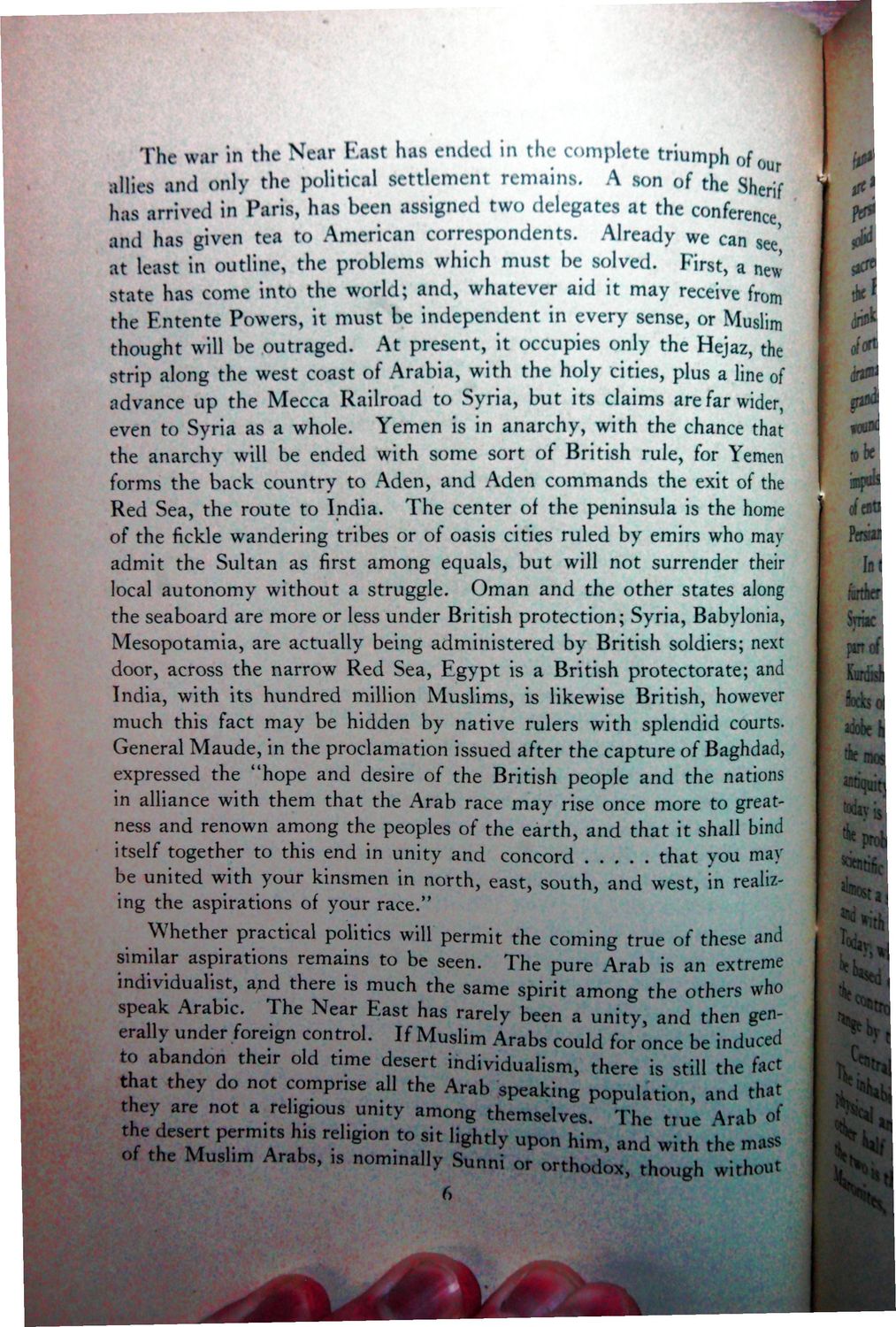| |
| |
Caption: War Publications - WWI Compilation 1923 - Article 19
This is a reduced-resolution page image for fast online browsing.

EXTRACTED TEXT FROM PAGE:
* The war in the Near East has ended in the complete triumph of 0 u r allies and only the political settlement remains. A son of the Sherif has arrived in Paris, has been assigned two delegates at the conference •hd has given tea to American correspondents. Already we can see' at least in outline, the problems which must be solved. First, a new state has come into the world; and, whatever aid it may receive from the Entente Powers, it must be independent in every sense, or Muslim thought will be outraged. At present, it occupies only the Hejaz, the strip along the west coast of Arabia, with the holy cities, plus a line of advance up the Mecca Railroad to Syria, but its claims are far wider, even to Syria as a whole. Yemen is in anarchy, with the chance that the anarchy will be ended with some sort of British rule, for Yemen forms the back country to Aden, and Aden commands the exit of the Red Sea, the route to India. The center of the peninsula is the home of the fickle wandering tribes or of oasis cities ruled by emirs who may admit the Sultan as first among equals, but will not surrender their local autonomy without a struggle. Oman and the other states along the seaboard are more or less under British protection; Syria, Babylonia, Mesopotamia, are actually being administered by British soldiers; next door, across the narrow Red Sea, Egypt is a British protectorate; and India, with its hundred million Muslims, is likewise British, however much this fact may be hidden by native rulers with splendid courts. General Maude, in the proclamation issued after the capture of Baghdad, expressed the "hope and desire of the British people and the nations in alliance with them that the Arab race may rise once more to greatness and renown among the peoples of the earth, and that it shall bind itself together to this end in unity and concord that you may be united with your kinsmen in north, east, south, and west, in realizing the aspirations of your race." Whether practical politics will permit the coming true of these and similar aspirations remains to be seen. The pure Arab is an extreme individualist, a;id there is much the same spirit among the others who speak Arabic. The Near East has rarely been a unity, and then generally under foreign control. If Muslim Arabs could for once be induced to abandon their old time desert individualism, there is still the fact that they do not comprise all the Arab speaking population, and that they are not a religious unity among themselves. The true Arab of the desert permits his religion to sit lightly upon him, and with the mass of the Muslim Arabs, is nominally Sunni or orthodox, though without fa* i* « * t 0)00 tkr ltd \ rfcBtJ Persia* In innncr Srrac jwrof Jxks aaoi* * today.' Me *xntin*c almost en ML ^r X h r,
| |